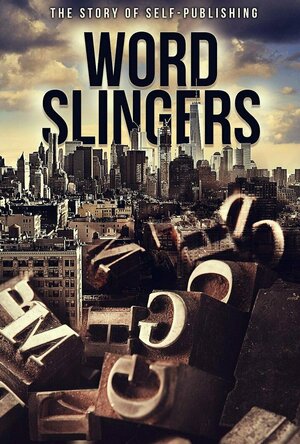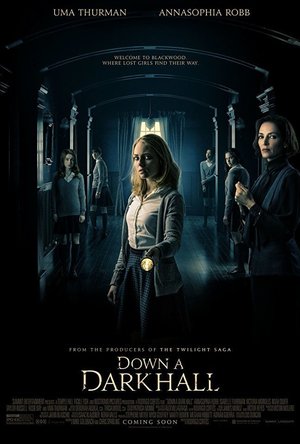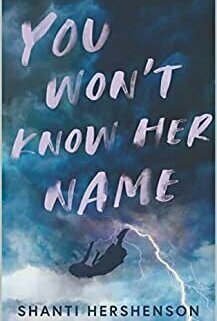
As a Man Thinketh by James Allen
Podcast
“A man is literally what he thinks, his character being the complete sum of all his thoughts,”...
Jesters_folly (230 KP) rated Blinded by the Light (2019) in Movies
Jul 10, 2019
It turns out that 'Blinded by the Light' is not really any of these, it's more of a 'slice of life' it the slice is a couple of years. The film centres on Javed, a Pakistani teen living in Luton, England in the late 1980s. Javed has written diaries and poems for most of his life but, due to his family life he has always kept them to himself. Not long after starting his A levels Javed is introduced to the music of Bruce Springsteen and finds that the lyrics speak to him in a way he's never felt before.
Blinded by the Light is a film about family, friends and finding your place. Javed starts off as a quiet, bookish character who, thanks to the people around him and his growing love of Bruce Springsteen records manages to find himself. However, this change leaded to problems as he clash’s with family and friends.
Being set in 80s and being about a Pakistani family the film also touches on the problem of racism and, from the clips I remembered from the trailer I found myself wondering if it was going to erupt into violence in the style of films like 'Made in England'. However, 'blinded by the Light' takes a more family friendly view, it does show some racism but less ‘violent’ and more personal making ‘Blinded by the Light’ a more family friendly film.
Although music plays a large part of the film it is not the music itself that’s important but the effect that it has on Javed, showing how the right music can change someone’s life.
Bob Mann (459 KP) rated Wordslingers: The Story of Self-Publishing (2021) in Movies
Sep 28, 2021
The democratization of publishing
The internet has brought many advantages to modern life, but perhaps one of the most interesting is the democratization of publishing. No longer is control in the hands of publishing houses, who might glance at and immediately dismiss new ideas in literature. It’s worth remembering that 12 publishing houses turned down J.K. Rowling’s draft for Harry Potter! Now anyone can be creative in writing and self-publish on the web. My own wife – Sue Mann – did just this, self-publishing the WW1 poems and reminiscences of two of her great-uncles. (It’s available from all good bookshops… oh, no…. actually just from here!) Are the poems artistically any good? I have no idea! Will it sell many copies? Clearly not! Was it a personal goal achieved in honouring their memory? Absolutely! Different people want different things from the medium.
Very ‘American’.
It’s probably down to the pioneer spirit, but as a generalisation Americans seem far more ambitious than Brits: or at least, more OPENLY ambitious. Whereas most Brits will quietly get on with building their careers, some Americans will go hell-for-leather towards their vision of “success” no matter the cost: no guts; no glory; and be noisy about it!
But for every J.K. Rowling or Bill Bryson there are several thousand writers who have ‘failed to launch’.
Here we follow two budding authors – one from California; the other from North Carolina – self-publishing their work and seeking sales.
One – Giles A (“Andy”) Anderson – has self-published a seemingly disturbing work called “Vidu” – the first of what he hopes will be a five-part series. He first talks from a ghoulish bookstore, speaking psycho-babble with the requisite hyperbole of an ‘artiste’. (It suggests how the books might read… but perhaps that’s misjudging). It comes then as a surprise when we find he doesn’t live alone in a coffin playing video games on his own, but has a lovely wife and two young and perfectly normal children. So his book is an “off the beaten track kinda book”, but the man seems well-grounded and following his dream in bite-size pieces.
Moral: Avoid the Travel Books
As is often the case though, the documentary homes in on, and spends most of its time with, the other author – Adam Shephard. Shephard is struggling to launch as an author and also – in parallel – wrestling with the Green Card process for his supportive and vivacious Croatian wife Ivana. The problem is that Shephard has written an extended travel blog: ten-a-penny on sites like WordPress.
I read a Forbes article last year that reported that – astonishingly – in a survey 11% of American respondents had never travelled outside of their home state and 40% had never left the country. For such a well-heeled country, the US is incredibly insular. So Shephard’s vision is to encourage youngsters to step outside of their comfort zone and jump on that plane to Guatemala. It’s a fine objective. But does anyone want to listen? And – crucially – is the book any good and commercial enough? As the famous ‘founder of self-publishing’, the late Dan Poynter (to who the film is dedicated) says “You can’t make any money off a travel book”.
The film never goes as far as having either of the featured books critically reviewed: that might have added some extra spice to the story (and possibly provoked some painful reactions). But the piles of unopened boxes in Adam’s clinically white storage facility rather speaks for itself. Since Shephard never seems to do anything by halves, the boxes are piled high and thus the fall from grace is hard, long…. and absolutely riveting. (Ivana’s support and love in such difficult circumstances is commendable: he is a truly blessed man).
Jaw-dropping Walmart scene
At least at the start of the film, Adam’s self-belief and confidence in himself is infectious. The peak of his bravado, and a jaw-dropping highpoint in the movie for me, was a scene filmed in Walmart. Shephard, in a case of “reverse shoplifting”, sneaks HIS books onto the bookshelves of Walmart. What happens when they then try to buy one? It’s a real eye-opener and worth watching the documentary for in its own right.
It’s an interesting legal position: if Walmart were to be upset about this scene, what on earth could they charge them with!? Littering?
Highs and lows.
Shephard seems to have talent as a speaker, and it struck me that he would be genuinely suited to a job in sales. In the movie we see him performing self-confidence-building pitches to young people (and, boy, could we sometimes use that in the UK post-Brexit). A few books sold. But another event barely breaking even. The pattern becomes familiar and, in a way, rather tragic.
There are unexpected highs and lows for Adam and Ivana along the way though, unrelated to the publishing story, and the filmmaker skillfully weaves them into the narrative to good effect.
Thought-provoking.
I watched this on a whim and thought I’d probably switch off after 10 minutes. Documentaries normally are not my thing! But no. It had me gripped to see how things would turn out – like watching a slow-motion car crash! The journey was well-worth the ride: a real page-turner you might say.

The Message Bible (MSG)
Book and Education
App
This is not a study Bible, but rather "a reading Bible." For more than two years, Eugene Peterson...

The Catholic Children’s Bible
Book and Education
App
The most loved Bible stories come to life before your eyes through vibrant images, dynamic...

Rhonna Designs
Photo & Video and Social Networking
App
Love to add personality to your photo edits? With Rhonna Designs App, you’ve got all the tools...
BookwormLea (3034 KP) rated Down a Dark Hall (2018) in Movies
Jul 26, 2020
The general plot is that after her father dies when she's young, Katherine slowly becomes the stereotypical angry teen who lets the world know she hates it by letting it burn. She gets made to go to therapy after claiming she sees her father (which she does, because we watched his spirit say goodbye). She is invited to Blackwood. A mysteriously remote mansion home to 6 even more mysterious teachers, including Madame Duret, the headmistress. Kat is joined by 4 other girls of a seemingly lost cause. Duret calls them 'gifted' and 'misunderstood'. They are taught the usual lessons, Maths and English, music and art. And with the exception of Veronica (the literal definition of teenage nightmare) they all seem to excel at one thing in particular. Our lead girl Kat, music, specifically piano. She is taught by Durets son, Jules. Everything seems to be going well, one girl paints like a prodigy, another writes poems that could rock Shakespeares world, Kat does her piano thing rivalling Mozart and the last (who could basically still be in the role of Esther in Orphan) is solving maths problems that could save the world. That is until they start seeing shadows of people who aren't there, voices in their heads and they physically can't stop doing what they are gifted at, to the point where they don't eat or leave their rooms. After finding old files of other girls in similar situations who died, Kat and Veronica try to do something about it. Veronica is taken away and Kat is suddenly a Piano prodigy, almost possessed by the greats themselves. Yeah 'almost'. Because that's exactly what happened. They have been used as vessels for history's greatest men and women, who died too soon. How fantastic is that? If this movie was made better, that is a brilliant plot! But of course everything goes bad, just like their ghosts, the girls start dropping like flies, Poem girl kills herself, Painter literally starves herself, and crazy math girl is on the verge of escaping when she becomes enthralled in the beauty of the flames. Flames caused by Kat when she saves Veronica from being possessed by some weird demon thing who really doesn't get explained. They almost get out. Duret gets possseded and burned by the spirits she conjured. All the teachers die and Jules is crushed when he saves Kat. Of course there has to be surviors so Kat and Veronica get out, where on the brink of death, Kat sees her father again who makes her come back to life after she tries to go with him.
Overall, not a terrible movie, but if it had been made better, would probably be one of my favourite plots ever!
Heather Cranmer (2721 KP) rated You Won't Know Her Name in Books
Feb 17, 2022
You Won't Know Her Name is certainly not for the faint of heart. With heavy themes such as bullying and sexual assault, I knew the plot would be a dark read. However, Hershenson writes like a pro, and the way she incorporates these themes into her story didn't put me off reading. The plot is solid and interesting if a little sad at what The Girl had to go through. I loved that there were no chapters, only poems and that each poem started with a title of what the short poem would be about. Each poem flows well into the next. It really made my heart hurt for all the injustices done to the girl (and her sister). What angered me the most was how the school failed this child. Unfortunately, many schools fail bullied children every day. (I speak from personal experience). I would say that there is a plot twist in this story, but there are no cliff hangers. It's just sad that there are so many people (children and adults alike) that have to go through such horrible bullying.
The characters in You Won't Know Her Name felt very realistic. We are told early on by the author that names aren't important so no names are ever mentioned in this story. We have "The Girl" who I felt so bad for. She didn't deserve any of the hate and the uncaringness she got. I just wanted to protect her so much throughout the story and tell "The Person" (The Girl's bully) to just back off. The Person acted in such a vile way toward The Girl and her sister. It made me wonder about The Person's background though. Was The Person being bullied at home to act out that way in school? I am, by no means, excusing The Person's behavior though.
Trigger warnings for You Won't Know Her Name include sexual assault (not graphic), profanity, talks of suicide, and violence. The author has included trigger warning notices at the start of each poem that could possibly trigger some readers though.
You Won't Know Her Name is a sad but a good read. There is some good to come out of it though. You Won't Know Her Name is a thought provoking read about a subject that, sadly, many children (and adults) have to deal with although they shouldn't.
Overall, You Won't Know Her Name is a well written piece of poetic literature that everyone should read. I would highly suggest that parents read it with their child and discuss it. If you are a librarian, buy this book for your library. It's not a long book either, so even the most hesitant reader could get a lot from it. I would definitely recommend You Won't Know Her Name by Shanti Hershenson to those aged 14+. Trust me, this is a book that needs to be read.

Radio y Podcast iVoox
News and Music
App
With iVoox you can listen, share and download podcasts, radio shows and much more for free, whenever...

Public Speaking Teleprompter Presenter Audio/Video
Business and Photo & Video
App
Speechmaker turns an iPhone or iPad into your personal mobile podium. Create, archive, rehearse,...



